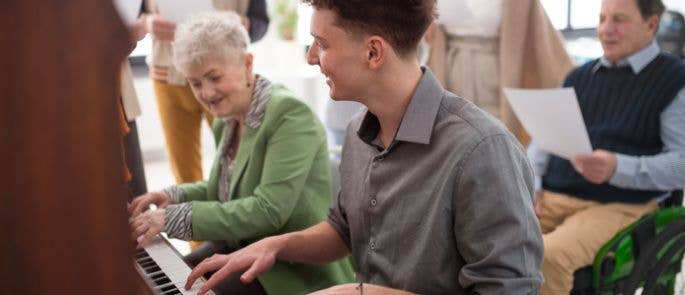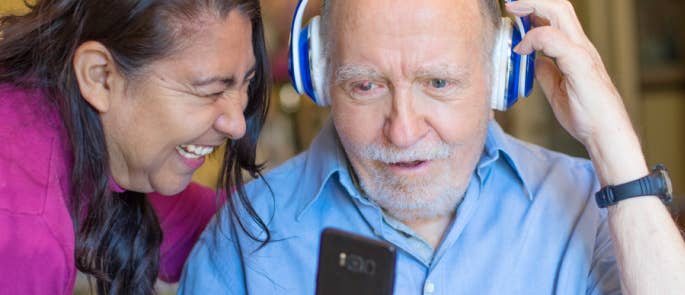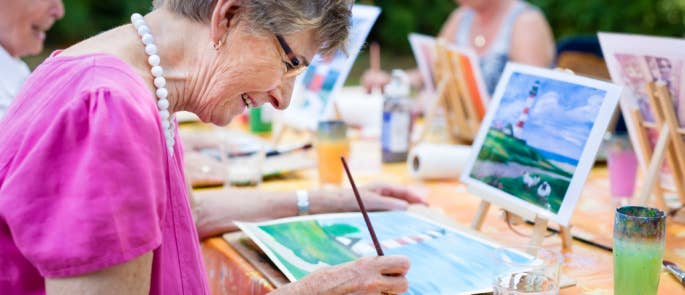How to Become an Activities Coordinator
An activities coordinator can be an incredibly fulfilling role and one that can offer a vast number of benefits to those who participate. The role goes beyond simply arranging activities, it is one that can provide people with social interaction, exercise, engagement and a sense of inclusion.
This article will look at what the role and responsibilities of an activities coordinator are, the steps to take and the skills required to become one and what qualifications are necessary to take on the post. We will also provide some useful ideas on the types of activities that could be arranged and the kind of benefits they can bring.
What is an Activities Coordinator?
An activities coordinator is a title given to roles that involve all aspects of organising a range of activities, whether this be at youth groups, schools, hotels and leisure complexes or within the health and social care system. This article will focus on the latter and it is worth noting that the role is sometimes referred to as an activity support worker or an activities worker instead.
It is a job that involves organising a variety of activities for those receiving care and support and it is commonly in place within care homes and community facilities, such as day centres, although the service can also be provided within home care settings. This role is very hands-on and would best suit someone with great energy, who loves working with a range of different people, to encourage and support them to live active and fulfilling lives.
By getting to know the residents and service user’s individually, an activity coordinator can develop a programme of person-centred activities, taking into account the individual’s needs and preferences to ensure each member of the group can benefit. There are many responsibilities involved in this role and it is important to understand what is required to produce a successful activities program.
You may work with people who have physical and/or cognitive impairments, making certain activities more challenging to participate in, or they may struggle to communicate the kinds of things they would like to engage in. It is important for an activities coordinator to work around these barriers and to be a source of empowerment. Take a look at our article on Empowerment in Health and Social Care for further insights on its importance and how it can be achieved.
You may need to talk to family and friends to help gain a clearer picture of what the service user enjoys now or enjoyed doing in the past, or think about their general health and wellbeing and consider how that can be supported through activities. Looking through care plans and collaborating with other staff members can be a great way to learn more.

What Does an Activities Coordinator Do?
To summarise the purpose of an activities coordinator, it is important to reiterate the importance of the role and, when done proficiently, it can be one that provides life enhancing benefits to the residents and service users who participate.
An activities coordinator helps individuals to fulfil their potential by organising person-centred activities and engagement that meets their needs and supports both their physical and mental wellbeing.
An activities coordinator doesn’t just engage with individuals to create the most suitable activities programme for their needs and enjoyment, they also oversee the activities taking place including any staff and volunteers who are involved. Arranging adequate and appropriate staffing for activities, events and outings is an important part of the role, as well as ordering any supplies required.
It is an incredibly important role, particularly in care home environments where residents are likely to have reduced independence and can be more susceptible to isolation and loneliness, as well as boredom and a lack of engaging exercise and activity.
Let’s take a look at what other day to day duties and responsibilities might look like for someone working as an activities coordinator.
Responsibilities of an Activities Coordinator
As you will find throughout this article, the individual responsibilities of an activities coordinator can vary. However, those mentioned below offer you a good general idea of what the job entails. A typical day may include:
- Building a rapport with individuals and talking with them about what activities they may enjoy.
- Organising activities that are tailored to the needs of individuals, making any reasonable adjustments as required to help support participation.
- Providing group and individual activities.
- Booking external entertainment, outings, transport, etc.
- Being on hand to set up and tidy away when activities are taking place.
- Helping residents and service users to engage in active participation through helping them to socialise, maintain relationships and enjoy an inclusive life.
- Making sure all environments being used are safe and appropriate.
- Maintaining accurate records.
- Having responsibility for managing budgets.
If that sounds like the kind of day you would enjoy and feels like a role you could thrive in, let’s explore how you can become an activities coordinator.

How to Become an Activities Coordinator
There are varying requirements asked of candidates when it comes to securing a position as an activities coordinator, as different organisations may request different levels of training, qualification and experience. This is to ensure the needs of those participating in the activities can be understood and supported appropriately and effectively.
If you are new to this line of work, or are new to doing it within a health and social care setting, you may find it useful to search for vacancies. You don’t need to apply, but it can help you to gain a better understanding of the different environments you could work in, the differing capabilities and needs of those you could be planning activities for, what your duties and day to day role might entail and what kind of experience, skills and training you may be required to have.
There are many job sites that have numerous adverts to browse through. Taking a look on your Local Authorities website, as well as those for any local care homes, community day centres or private care companies, could also be beneficial. Job adverts of this kind will usually have a job description and a person specification to help you to understand if you are a good candidate for the role, and if not, what you could look to develop going forward.
This role is also one that can be a popular choice for those who have worked as a care worker and would like to take on a new challenge, whilst still being able to utilise their experience and work with those with care and support needs.
The following looks at some of the skills and qualifications that can help make a great activities coordinator.

What Skills are Required to Become an Activities Coordinator?
As we have already discussed, the skills required may vary, but some of the most commonly requested that will help you to perform well in your role include:
- An ability to work on your own initiative.
- Good digital skills.
- Excellent communication skills – including active listening.
- Organisational skills and reliable time keeping.
- Being empathetic and understanding.
- A sound knowledge of safeguarding.
- Having a passion for working with your chosen group, such as the elderly or those with mental ill health, for example.
- Being kind, friendly and engaging.
- A positive and professional manner.
- Being a strong team player.
- The ability to understand and follow procedures.
- Good collaboration and team leading skills.
- A good level of literacy and numeracy.
- Understanding of how to work and manage a budget.
The above list is not exhaustive, but it does cover many of the skills and attributes needed to be an excellent coordinator and work with those who have care and support needs. Gaining these skills and understanding can come from your own life experiences, a variety of working and study environments or from volunteering.
However, as an activities coordinator within health and social care settings, there are many factors involved in keeping everyone safe, free from the risk of harm and ensuring their dignity is maintained at all times. To do this successfully, you must have an understanding of people’s individual needs and rights, often requiring you to gain certain competences through certified training.
We will now take a look at what training and qualifications the role might require.

What Qualifications are Needed to Become an Activities Coordinator?
It is always important to read the person specification for any role you apply for to ensure you meet the criteria, as there may be some differences depending on where you will be working and who with.
For example, some organisations may require you to have GCSE English and Maths as well as evidence of experience and learning in a health and social care setting. This could be an award, certificate or diploma in Health and Social Care.
Generally speaking, there are many employers who will accept a candidate for the role of activities coordinator without any formal qualifications in place. Often, they will provide you with any necessary training during your induction, such as Basic Life Support, Moving and Handling, and any specific training that may be of benefit based on the group you will be working with, for example Dementia Awareness or Autism Awareness.
You may, of course, have training specific to activity provision and/or health and wellbeing, which are areas that are incredibly beneficial to an activities coordinator. It is always worth enquiring with a prospective employer if you have any queries about the role and your suitability. Some organisations may pay for you to gain certain qualifications during employment (via the Workforce Development Fund).
Activities Coordinator Tips and Ideas
Different types of activities will target particular needs and it is important to bear this in mind when planning which ones are most suitable. For example, those with dementia can greatly benefit from reminiscence activities, such as looking through their old photographs to try and remind them of their happy memories. This activity can be one many people enjoy and is a nice one to involve their family and friends in. It is also an effective way for care staff to learn more about those they support.
A few further examples include:
Social interaction – this could be between residents, other members of the wider community, or even one to one time with you. You could support them by writing letters to friends or making phone calls or arranging video calls with those that they may not often see.
A few example activities that could encourage socialisation include:
- Arts and crafts.
- Singing and music activities – consider starting a choir.
- Quiz night.
- Games night.
- Movie night.
- Theme parties – perhaps basing the décor, music and attire around different decades.
- Book clubs.
For further inspiration, take a look at our two articles offering ideas for a variety of different activities:

Relaxation and wellbeing – this could be a meditation class, some mindful art time, or an outing that involves spending some time out in nature.
Fun and play – sometimes an individual’s health status or advancing age can take the focus away from finding enjoyment in life. There are many ways to find fun. Activities coordinators can enjoy being creative to bring joy into people’s day.
A sense of purpose – this is incredibly important and is an area that can mean different things to different people. Activities that provide someone with increased self-worth, achievement and a sense of purpose can be very rewarding and motivating. Find out what employment or skills they used to engage in and see if there are ways to bring some of those talents into use again.
Many people who receive care and support can have issues with mobility and fragility. Physical activity should always be included in any activities program, not only for health and wellbeing benefits, but as a way to help maintain and promote independence and confidence.
The biggest tip for being a good activities coordinator is to take the time to understand people and choose those activities that will provide the greatest amount of benefit, fulfilment and joy to those who participate. In this role, you will have the opportunity to directly impact and improve people’s quality of life.
There are many transferable skills that can be utilised as an activities coordinator and many ways to gain any additional training and experience that may be required. This role is incredibly important, impactful and provides an immense amount of job satisfaction.







